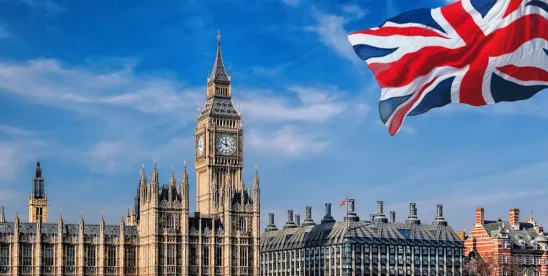Under growing pressure to tackle high net migration figures, the Home Office has published plans to clamp down on visa abuse and exploitation to be implemented through amendments to the Employment Rights Bill. These are aimed at “rogue” employers (particularly within the care sector) but are likely to affect any UK employer with a licence to sponsor overseas workers.
What are the key changes?:
- A two-year ban (as a minimum) from sponsoring overseas workers for businesses that repeatedly flout visa rules or commit serious employment breaches, such as not paying the National Minimum Wage. There has always been a duty on sponsors to comply with immigration rules and wider employment law obligations, failing which they are at risk of sponsor licence revocation for up to 12 months. In practice, action against sponsors for breaching non-immigration related rules is very rare. However, the government has repeatedly stated its intention to increase information-sharing between HMRC, DWP and the Home Office – if this comes to fruition, it’s likely that employment law-related compliance action will increase.
- Extending the duration of action plans from 3 to 12 months. These plans are issued to sponsors who commit minor visa breaches and whose licences have consequently been downgraded from an A-rating to a B-rating, leaving them unable to sponsor any new workers until they have completed specific compliance actions. These might include improvements to record-keeping, increasing control over staff who assign Certificates of Sponsorship or improving communication between different parts of the business.
- Prohibiting employers from “engaging in the unethical practice of charging skilled workers for the cost of sponsorship”. There are already rules in place preventing employers from passing on the cost of the Immigration Skills Charge to sponsored workers (and sponsors are expected to cover the Certificate of Sponsorship fee) so it seems that those restrictions may now be extended to cover other costs incurred as part of the visa process including the Immigration Health Surcharge and the visa application fee itself. It is currently completely legal to pass these two costs on to the employee so “unethical” is clearly neither a fair nor appropriate description of that practice.
Whilst it appears that the government’s intention is to target “unprincipled companies” which pass on visa costs to workers at “grossly inflated levels” (particularly within the care sector), this proposed change could affect any sponsor legitimately seeking to share some of the significant financial burden of sponsorship, including through the recoupment of visa fees where an employee resigns from the business within a relatively short pre-agreed period.
The Home Office is right to require employers to play by the rules but the tone of the release and what these plans might mean for all sponsors (even well-intentioned ones) is troubling. The press release refers to employers which repeatedly “flagrantly flout” visa rules, but it is hard to see how this would differ in practical terms from ordinary or even positively discreet repeated flouting, so this can only be seen as playing to the audience in a faintly distasteful manner.
Alongside these changes, the government’s statement highlights what it describes as a “major surge” in targeted visits to “rogue businesses suspected of employing illegal workers”, the Home Office having completed over 6,600 visits during January to October 2024. Note the suggestion here that to be a “rogue business” you only have to be suspected of employing illegal workers – whether you actually do or not seems not to matter. Even under this new government, surely employers are still innocent until proven guilty?
The release flags a range of sanctions that may be imposed on those employing illegal workers, including financial penalty notices, business closure orders and potential prosecution. These are nothing new, nor is the question of whether the Home Office has close to sufficient resources to carry out checks on the 100,000 plus organisations with Skilled Worker sponsor licences alone, let alone the ability to easily identify the “shameless employers” this initiative is intended to target.
The Home Office says it is introducing these measures as part of wider efforts to tackle the root causes behind the UK’s long-term reliance on international workers but it is difficult to see the logic in this. Compliance is a key part of the sponsorship system but enforcing it in a ham-fisted way that treats all sponsors as potential criminals won’t fix anything. Whilst the skills threshold for sponsorship was reduced post-Brexit, significantly higher visa costs mean that compliant employers generally only sponsor overseas workers as a last resort when they are unable to find the skills they need from within the resident workforce. And in the care sector clearly targeted by these new proposals, surely a key factor is the squeeze on public funding which many care organisations say forces them to look outside the UK for people willing to do that work at rates the sector can afford to pay?
The issue of immigration and illegal working deserves a much higher level of debate than this.
What action should employers take?
Although the planned changes appear to be aimed at employers which intentionally breach their immigration duties, all organisations with overseas workers are likely to be affected. In fact, compliance action and fines are often issued to well-intentioned and generally diligent sponsors which have unwittingly fallen foul of their increasingly byzantine immigration obligations. Of the hundreds of cases we have advised on (many of them for large, professional organisations), almost all arise out of a genuine oversight on the part of the employer, combined with an often understandable lack of awareness of the relevant sponsorship and prevention of illegal working rules. Whilst ignorance is rightly not a valid defence to compliance, the UK immigration system remains complex and constantly changing. Employers with sponsor licences should therefore ensure, as a minimum, that:
- anyone with responsibility for sponsored workers (including line managers, in-house recruitment and talent acquisition teams, not just HR) has a thorough understanding of sponsorship criteria and compliance duties. This is particularly important for group organisations where sponsorship may be handled centrally but the sponsored workers themselves sit within different entities or divisions – sharing relevant compliance information so that record-keeping and reporting obligations can be met is vital.
- they have robust systems for:
- right to work checks for all employees (not just sponsored ones) before employment begins and, where required, follow-up checks
- sponsored employee record-keeping in line with the Home Office’s Appendix D
- identifying relevant changes to sponsored workers’ terms and conditions as well as changes to the sponsor organisation itself so that these can reported to the Home Office promptly.
The UK’s sponsorship system is not straightforward, nor the penalties for tripping over it trivial – training and legal support is a worthwhile investment.




 />i
/>i
